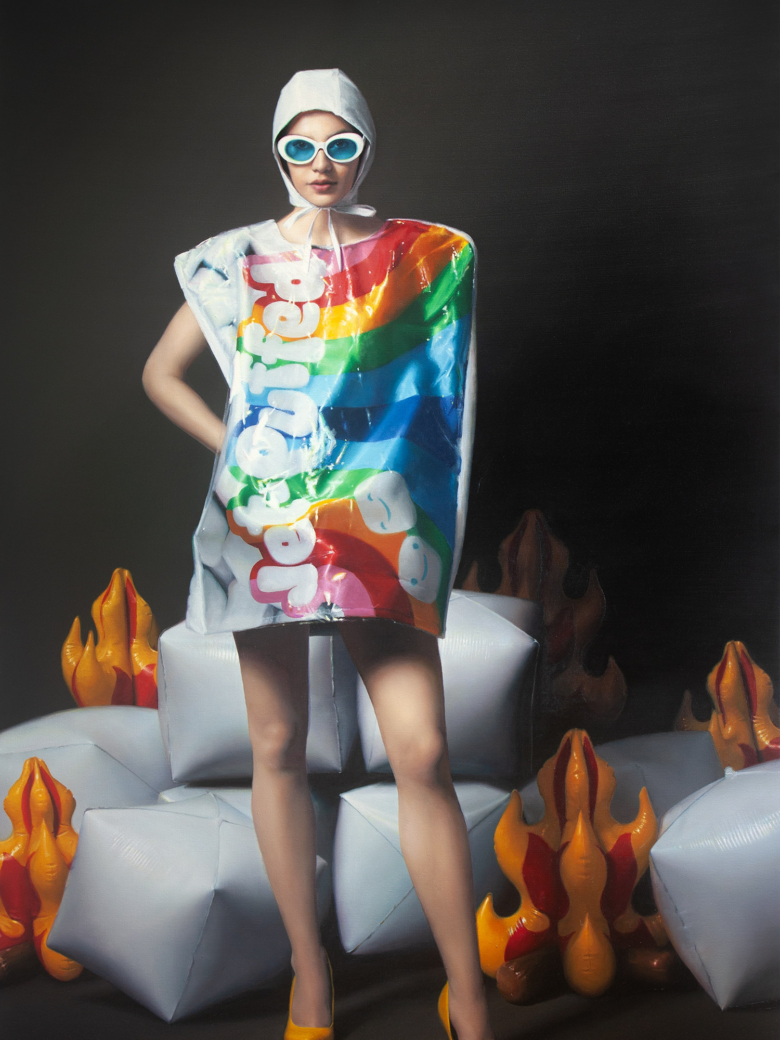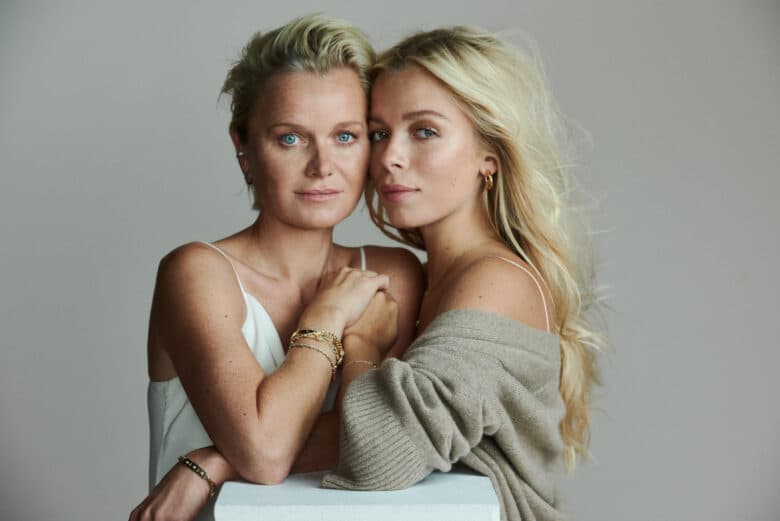If you’re queer in London, you know who Emily Crooked and Lucia Blayke are – mainly because they seem to be everywhere, be it party or protest. Emily is a model and writer for the likes of Dazed and British Vogue while Lucia is the founder of Harpies, a strip club featuring queer and trans+ performers. But it’s their collaborative work that has gained the most attention, whether that’s for London Trans+ Pride – also founded by Lucia, and for which Emily is currently an organiser – or casting Art School’s AW21 show, a diverse runway of trans and non-binary models that included Bimini Bon Boulash and Mr Gay England finalist Chiyo.
In a political landscape where trans people’s rights are debated for sport, Emily and Lucia are creating spaces of trans safety that combat the hostility that members of their community face while going about their daily lives. “We literally go out in public and it’s crazy at times,” Lucia says. “People are nearly crashing their cars to look at you or are shouting things – but we’re just normal people.” As Emily underlines, trans people should not be seen as oddities to be ogled at. “We’re not radical, we’re not new, we’ve existed for tens of thousands of years,” she says. “We shouldn’t be shocking to anyone.”
With their work across nightlife, media and fashion, the duo are creating the kind of authentic trans representation that the community so desperately needs – but just by existing and thriving as two trans women, they’re already beginning to create the change they want to see. “It would be easier if we dressed down more and tried to pass into society, but I want people to know that we’re trans in case there’s someone out there who’s also trans but is still in the closet figuring things out,” says Lucia. “Maybe if they see us existing and living proudly and being fierce, they can get the confidence to do that themselves.”
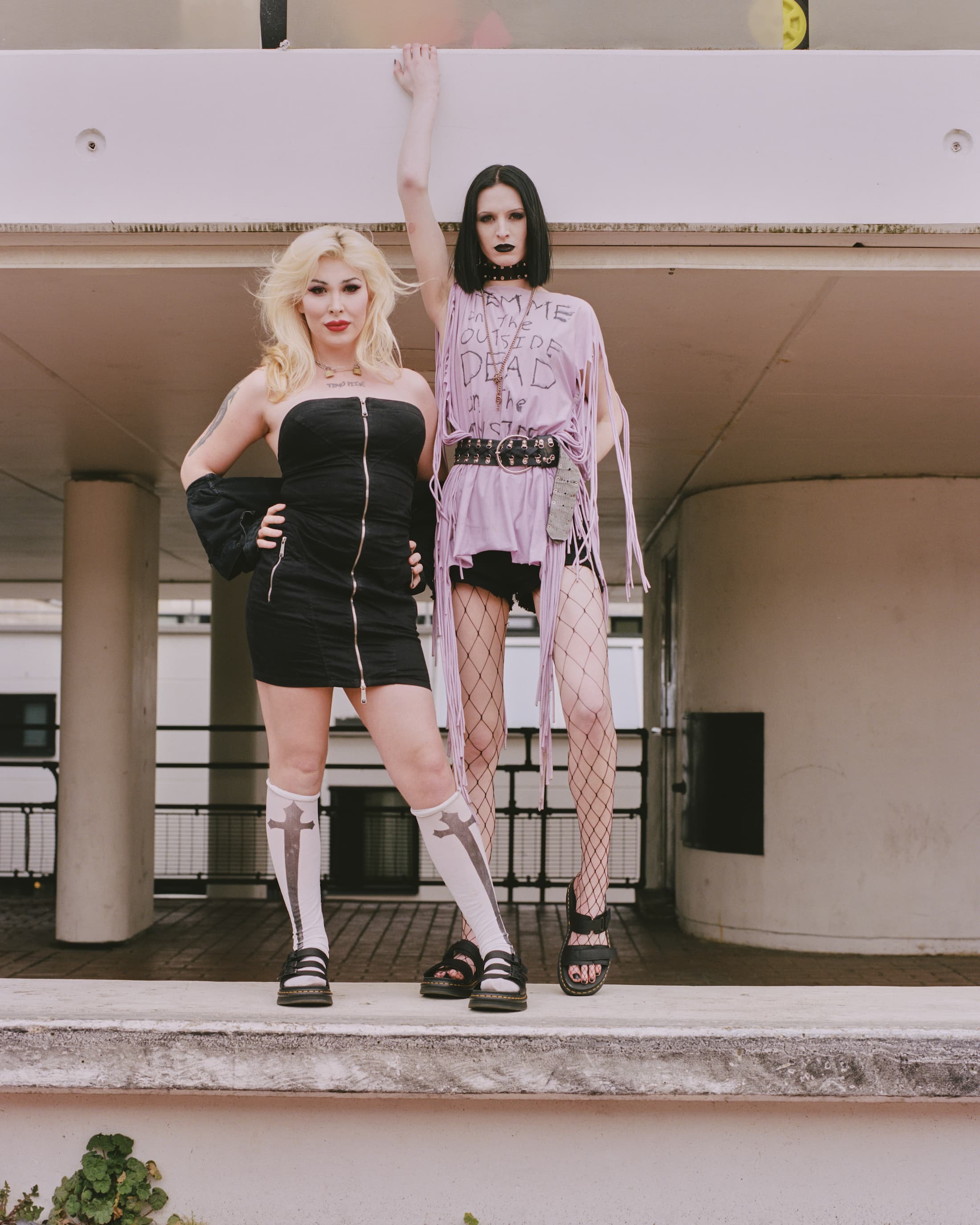
What’s one thing you would do to change the world?
Lucia Blayke: I would make all world leaders women, because women are the healers of the world, and the world needs to heal.
Emily Crooked: I’d stop assigning children gender, I think it’s a really damaging thing. For a lot of people it gives you a disadvantage starting out in life and [by avoiding assigning gender] you can solve a lot of problems before they begin.
I know you’re both actively involved in nightlife, why is club culture so important to you?
LB: Nightlife really brings us joy, getting to be with our community, feel the music and have a new experience. That’s when we come alive. We’re pretty much dead until we get into the club.
EC: Knowing that everybody’s going to be there [in the club], that you don’t have to specifically invite everybody but you know that you’re going to be surrounded by loved ones and everyone that you care about.
What should the government do to support nightlife as we emerge from lockdown restrictions on 21 June?
EC: From the beginning of the pandemic, the government should have been supporting self-employed artists and that includes DJs, promoters, everybody who works in nightlife. They just let it starve and suffocate which has been really difficult for a lot of people I know and for me.
LB: And stop turning bloody nightclubs into apartment blocks…
EC: …Stop building apartment blocks next to existing nightclubs and then complaining about noise.
LB: Let’s recognise nightlife as an important industry and an important part of UK culture and let’s protect it.
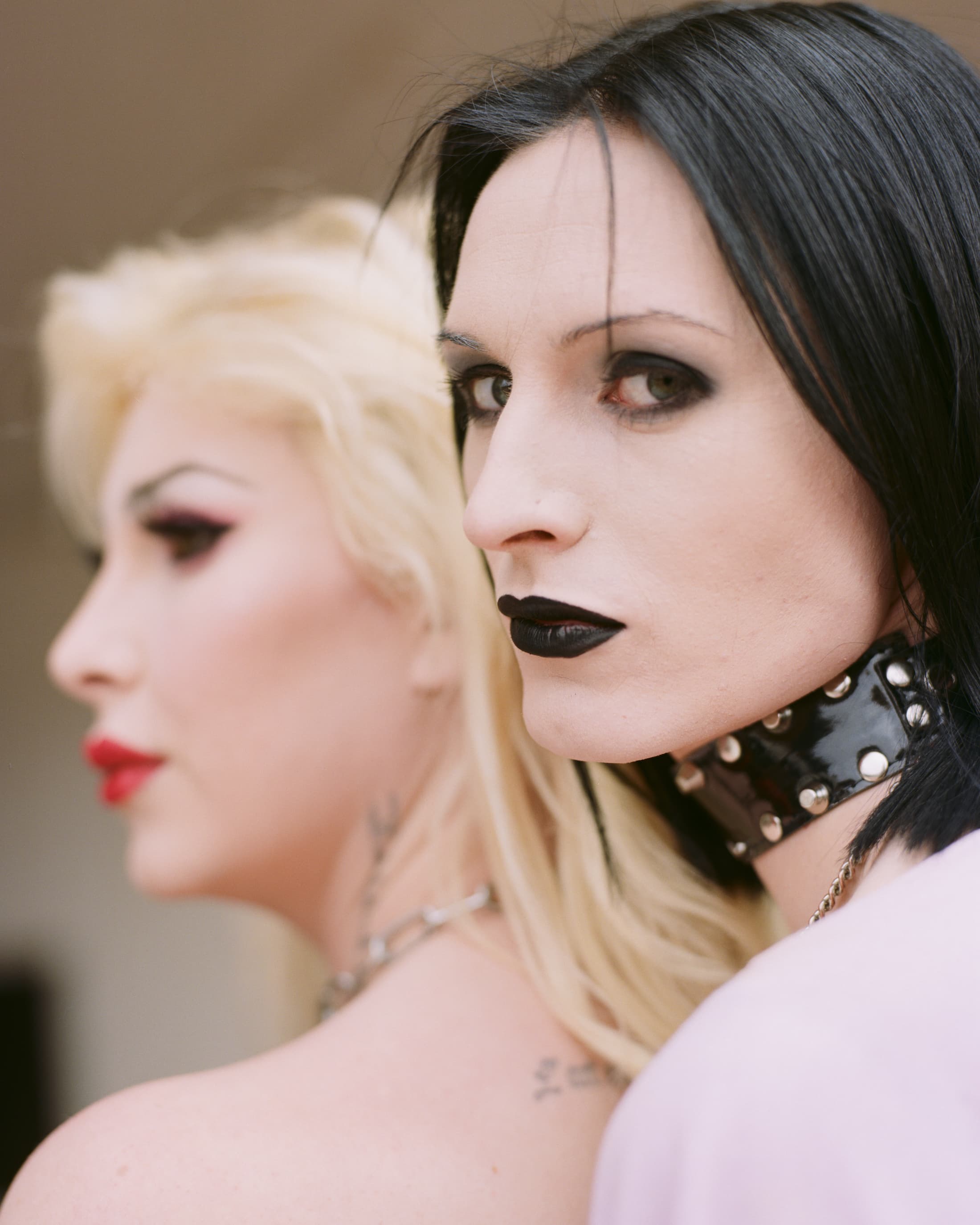
You mentioned that being around your community was one of your favourite things about nightlife. What does community means to you?
LB: People with a shared struggle coming together and reminding each other that they’re not alone in that struggle, sharing resources and just being a shoulder to help each other get through this crazy thing that we call life. Marginalised people tend to need communities more. I know we would be nowhere without the trans community, without people who understand what we’re going through. I think community is a vital part of survival.
EC: When it feels like you’re on your own, community is what backs you up and lets you know that you’re not alone. That you have support and that other people have done this before and they’ve been okay, that this is possible and that you can you can get through it.
What’s the most radical thing about you?
LB: I think the most radical thing about us is probably that we are trans. It’s unfortunate that our very existence and identity is still radical in today’s age but when we go onto the streets, it’s chaos. People are shouting things, people are nearly crashing their cars to look at you. It’s pretty crazy because we’re just normal people. We just want being trans to be a normal part of life, we don’t want our existence to be radicalised.
EC: [Being trans] is not radical, it’s not new. It’s existed for tens of thousands of years. This isn’t something that should be shocking to anybody, it’s just been eradicated by white, heteronormative, western civilization.
Why does representation matter?
LB: If I’d have grown up with more trans representation in the media, it would have been a lot easier for me. I would have probably figured things out a lot sooner in life and saved myself all the hard times, the suicidal thoughts and the decline in the state of my mental health. That’s why I try to be so visible as a trans person. It would be easier if we tried to dress down more and pass into society but I want people to see us and know that we’re trans in case there’s someone out there who’s also trans but in the closet and figuring things out. Maybe if they see us existing, living proudly and being fierce then they can get the confidence to do that themselves and have a better quality of life by living honestly and freely.
EC: Representation can help skip so many steps in terms of figuring out who you are. It can tell you what the options are and then also say, “You can do this and you can be successful, you can be on the cover of a magazine or you can be in a film.” That takes away the necessary steps of figuring it out yourself and then building up the confidence. You can just present that to someone as a possibility and that’s going to save them a lot of heartache.
LB: …And give them self-worth.
On that note, why do you think self-love is important?
LB: The relationship you have with yourself is the most important relationship that you’ll ever have in your entire life. We’re brought up to think a heteronormative idea of getting married and having children is the ultimate goal. The truth is, if you don’t want to get married, if you want to be single for the rest of your life or be polyamorous, if you don’t want children, that’s fine. At the end of the day, you are the person that you wake up to. That’s the relationship that you should be working on the most.
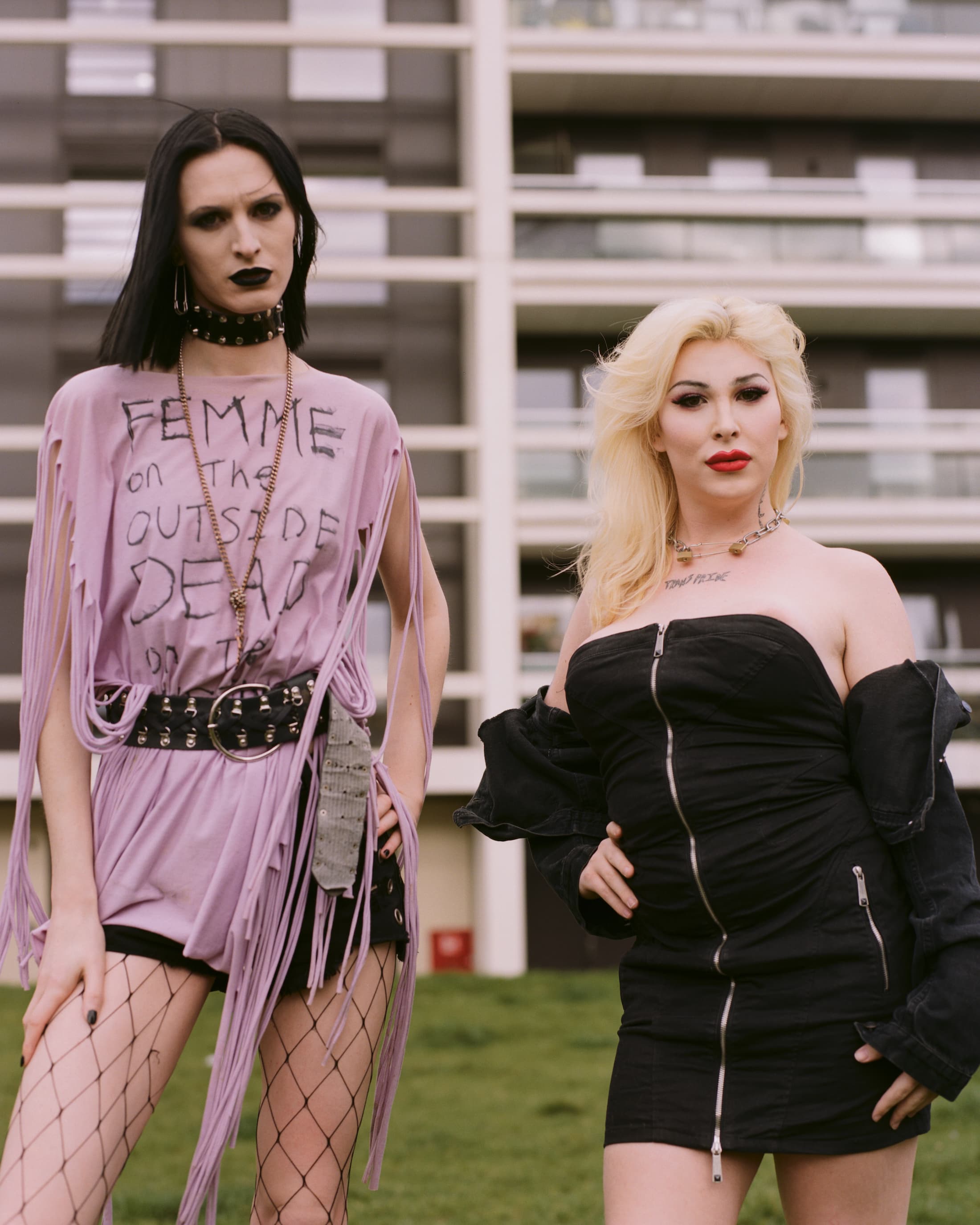
If you could change one thing about your industry, what would it be?
EC: If I could change one thing about the fashion industry, it would take its time more. It rushes through everything, it rushes from season to season and it’s based on an output that isn’t sustainable. It’s not sustainable in terms of the planet and it’s not sustainable in terms of resources but it’s also not sustainable in terms of human beings. We are not capable of moving at that kind of pace, it’s not good for the mental health of people who work in fashion.
What’s your Dr. Martens story?
EC: I wore steel toe industrial Dr. Martens with the brown and yellow laces all throughout my late teens and early 20s. Every gig, every protest, sun, rain, or snow. They had power attached to them, and history. At protests they make you feel prepared and protected. There’s something in the ritual of lacing them up extra tight: it’s the same action as so many others who have fought for change before you. And at gigs you knew your toes were going to make it out in one piece. I always joke that [Dr. Martens] are the unofficial shoe of trans girls everywhere. They’re gender neutral, they come in every size, and they’re punk as hell. I think almost every trans woman I know has owned a pair and worn them to death.
LB: Dr. Martens have always been resistance footwear. It’s part of the uniform of fighting oppression, challenging hate, and pushing for progress. It places you in a history and a tradition of youth and anger and dissatisfaction with the establishment. And it’s an essential part of the style and the fashions that have grown from those movements that have such significant influences on us now.
Let’s talk about the sandals you’re both wearing: the Dr. Martens Chilton and Dr. Martens Solomon. What makes them special?
LB: The sandals are gorgeous but also substantial. Well put together, thick soles, sturdy leather straps and elevated. It means a lot to be walking on something you have faith in.
As individuals who are busy pounding the pavement making positive change, is the sandal’s wearability and practicality important to you?
LB: Sandals shouldn’t just be an impractical shoe. I love that this is a sandal that can deal with broken glass, or whatever else is on the ground outside the club. I also love wearing sandals because I don’t have to find socks: a huge bonus.
Shop Dr. Martens Sandals at drmartens.com.
